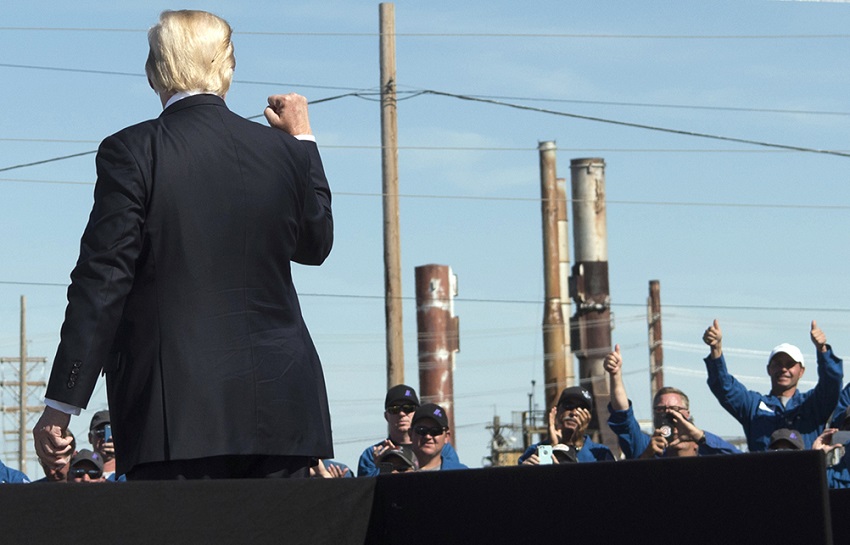WoodMac Analysis: Trump Presidency Could Halt $1 Trillion in Clean Energy Investment
(Reuters) — A victory by Donald Trump in the Nov. 5 presidential election would jeopardize a projected $1 trillion in low-carbon energy investments and carbon emissions would be 1 billion tonnes more by 2050 than under current policies, according to a new analysis by Wood Mackenzie published on Thursday.
Key Quote
“This election cycle will really influence the pace of energy investment, both in the next five years and through 2050," said David Brown, director of Wood Mackenzie’s Energy Transition Research. "Investments in low carbon supply need to be made in the near term to realize longer-dated decarbonization targets. US carbon emissions could grow, putting net zero out of reach in our delayed transition scenario.”
Context
Former President Trump has drawn a sharp contrast to his rival, President Joe Biden, who has made curbing climate change and boosting clean energy manufacturing big parts of his presidency and re-election campaign.
Trump has said he would reverse many of the Biden administration's signature climate policies, such as tax credits for electric vehicles and strong emissions standards for cars and power plants. He is expected to once again withdraw the U.S. from the Paris climate agreement.
Trump has courted oil executives' financial support in exchange for favorable energy policies.
By The Numbers
Wood Mackenzie projects about $7.7 trillion in investment for the U.S. energy sector over 2023-2050 under current policies, which include key incentives enshrined in the bipartisan infrastructure bill and the climate-focused Inflation Reduction Act. It would be $1 trillion less if Republicans reverse key policies bolstering low-carbon energy and infrastructure improvements.
In 2050, Wood Mackenzie projects, net US energy-related CO2 emissions will be 1 billion tonnes higher compared to what they would be under current policies.
The research firm also projects that the total stock of electric vehicles by 2050 would be 50% lower than under current policies since automakers would likely increase investments in hybrid production over electric cars.
Related News
Related News

- Enbridge Plans 86-Mile Pipeline Expansion, Bringing 850 Workers to Northern B.C.
- Intensity, Rainbow Energy to Build 344-Mile Gas Pipeline Across North Dakota
- Enbridge Sees High Demand to Expand 593-Mile Canada-to-U.S. Gulf Oil Pipeline
- Energy Transfer to Build $5.3 Billion Permian Gas Pipeline to Supply Southwest
- Strike Pioneers First-of-Its-Kind Pipe-in-Pipe Installation on Gulf Coast with Enbridge
- A Systematic Approach To Ensuring Pipeline Integrity
- 275-Mile Texas-to-Oklahoma Gas Pipeline Enters Open Season
- LNG Canada Start-Up Fails to Lift Gas Prices Amid Supply Glut
- Enbridge Sees High Demand to Expand 593-Mile Canada-to-U.S. Gulf Oil Pipeline
- Strike Pioneers First-of-Its-Kind Pipe-in-Pipe Installation on Gulf Coast with Enbridge





Comments